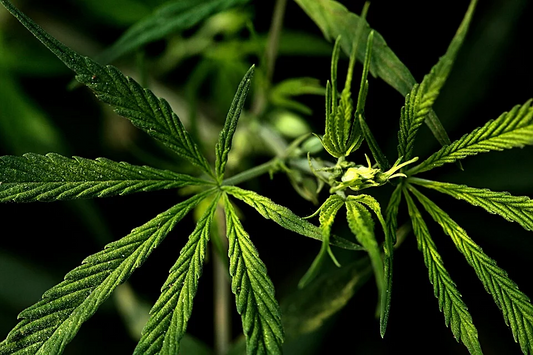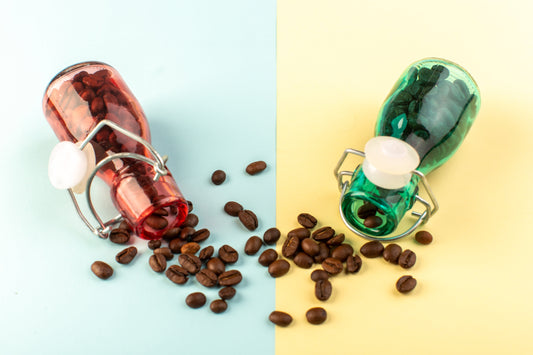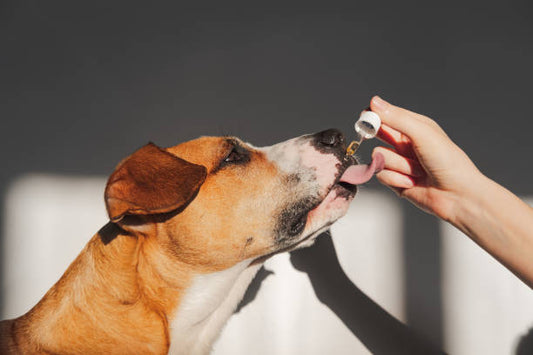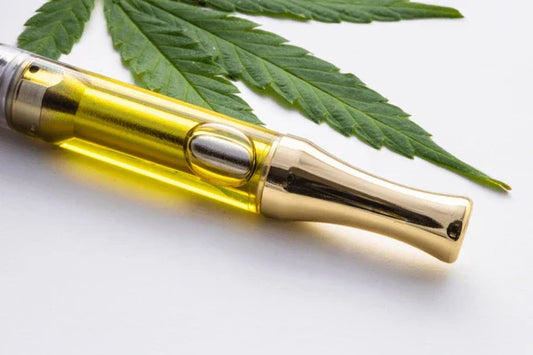-

Purity 800mg Full-Spectrum High Potency CBD Water Soluble Powder 50g
Cold pressed CBD products are not subject to NF (novel food) regulations imposed by the FSA. SAL...SALE OR RETURN GUARANTEEPurity 800mg Full-Spectrum High Potency CBD Water Soluble Powder 50g
Cold pressed CBD products are not subject to NF (novel food) regulations imposed by the FSA. SAL...SALE OR RETURN GUARANTEELogin to view price -

Voyager 99.5% CBD Isolate - 1g
Voyager's 99.5% CBD Isolate in a 1g package offers a premium and highly potent form of CBD, makin...Voyager 99.5% CBD Isolate - 1g
Voyager's 99.5% CBD Isolate in a 1g package offers a premium and highly potent form of CBD, makin...Login to view price -

Bulk CBC Isolate Wholesale UK
For Price Beating, use our Automated Price Beating Service once you've signed in! For Large Orde...-50%For Price Beating, use our Automated Price Beating Service once you've signed in! For Large Orde...Login to view priceSale -

American Bulk CBG Terpsolate Crystals Wholesale UK
For Price Beating, use our Automated Price Beating Service once you've signed in! For Large Orde...American Bulk CBG Terpsolate Crystals Wholesale UK
For Price Beating, use our Automated Price Beating Service once you've signed in! For Large Orde...Login to view price -

Purple Dank 1000mg Pure CBG Isolate (BUY 1 GET 1 FREE)
SALE OR RETURN GUARANTEE available for this product!Return within 120 days if unsold (see terms) ...SALE OR RETURN GUARANTEEBUY 1 GET 1 FREEPurple Dank 1000mg Pure CBG Isolate (BUY 1 GET 1 FREE)
SALE OR RETURN GUARANTEE available for this product!Return within 120 days if unsold (see terms) ...SALE OR RETURN GUARANTEELogin to view price -

Purple Dank 1000mg Pure CBD Isolate (BUY 1 GET 1 FREE)
SALE OR RETURN GUARANTEE available for this product!Return within 120 days if unsold (see terms) ...SALE OR RETURN GUARANTEEBUY 1 GET 1 FREEPurple Dank 1000mg Pure CBD Isolate (BUY 1 GET 1 FREE)
SALE OR RETURN GUARANTEE available for this product!Return within 120 days if unsold (see terms) ...SALE OR RETURN GUARANTEELogin to view price -

Endoca 1000mg 99% CBD Cannabis Crystals - 1g
Novel Food application number: RP795 Endoca are dedicated to producing the finest and purest qual...Endoca 1000mg 99% CBD Cannabis Crystals - 1g
Novel Food application number: RP795 Endoca are dedicated to producing the finest and purest qual...Login to view price -

Aztec CBD Isolate 90% 1000mg CBD - 1g
Novel Food application number: RP349 Aztec CBD Isolate is the purest form of hemp extract there i...Aztec CBD Isolate 90% 1000mg CBD - 1g
Novel Food application number: RP349 Aztec CBD Isolate is the purest form of hemp extract there i...Login to view price -

Canevolve CBD 99.7% Isolate Crystals 1000mg CBD
CBD crystals are isolated and purified extractions of the cannabis compound.As an isolate, CBD cr...Canevolve CBD 99.7% Isolate Crystals 1000mg CBD
CBD crystals are isolated and purified extractions of the cannabis compound.As an isolate, CBD cr...Login to view price -

97% American Bulk CBG Isolate Wholesale UK
For Price Beating, use our Automated Price Beating Service once you've signed in! For Large Orde...97% American Bulk CBG Isolate Wholesale UK
For Price Beating, use our Automated Price Beating Service once you've signed in! For Large Orde...Login to view price -

American Bulk CBD Terpsolate Crystals Wholesale UK
For Price Beating, use our Automated Price Beating Service once you've signed in! For Large Orde...American Bulk CBD Terpsolate Crystals Wholesale UK
For Price Beating, use our Automated Price Beating Service once you've signed in! For Large Orde...Login to view price -

99.7% American Bulk CBD Isolate Wholesale UK
For Price Beating, use our Automated Price Beating Service once you've signed in! For Large Orde...99.7% American Bulk CBD Isolate Wholesale UK
For Price Beating, use our Automated Price Beating Service once you've signed in! For Large Orde...Login to view price
Wholesale CBD Isolates Q & A
What raw materials are used in CBD Isolate products?
CBD Isolate is typically made from industrial hemp, a variant of the cannabis plant that is rich in CBD and low in THC. The hemp is carefully grown and harvested to ensure the highest possible quality. The stalks, stems, and flowers of mature hemp plants are used as the raw materials. These parts of the plant are rich in CBD. Strict quality controls are usually in place to make sure these plants are grown without the use of pesticides, herbicides, or other potentially harmful chemicals.
What extraction method is used to create CBD isolate?
The process to create CBD isolate involves a few key steps. The first is the extraction of raw CBD oil from the hemp plant. This is commonly done using supercritical CO2 extraction, a method that uses pressurised carbon dioxide to pull CBD, other cannabinoids, and terpenes from the plant material. The benefit of this method is its efficiency and its ability to preserve and isolate the cannabinoids.
How is CBD isolate made?
After the initial extraction process, CBD isolate is made by further refining the extracted oil to remove all other compounds, leaving only pure CBD. The process typically involves a 'winterisation' process that further removes any remaining plant material, followed by a 'decarboxylation' process where the CBD is heated to activate it. Lastly, the material is put through a 'distillation' process which isolates the CBD from all other compounds.
What is the difference between full spectrum CBD and Isolate?
Full Spectrum CBD and CBD Isolate are both forms of cannabidiol, but they differ in their compositional makeup. Full Spectrum CBD includes all the cannabinoids, terpenes, and other phytochemicals present in the cannabis plant, including trace amounts of THC (the psychoactive compound). This composition is thought to contribute to the 'entourage effect' where all the compounds work synergistically to enhance each other's benefits. CBD Isolate, on the other hand, is pure CBD — all other compounds are completely removed during the extraction process. This results in a product that contains 99% pure CBD.
How is the purity of CBD isolate confirmed?
CBD isolate's purity is generally confirmed through independent third-party lab testing. These tests will measure the exact concentration of CBD, confirming that it's near 99% purity, and will also verify that it's free from other cannabinoids, terpenes, and contaminants like heavy metals or pesticides. These results are usually available to consumers via Certificates of Analysis (COA).
Can CBD isolate be used in cooking?
Absolutely, CBD isolate can be easily incorporated into cooking and baking. Its powder form allows it to blend seamlessly into your recipes. As it is both tasteless and odourless, it doesn't impact the flavour of your food. You can stir it into sauces, soups, or smoothies, mix it into cookie dough or cake batter, or even sprinkle it on top of your dishes. However, CBD may lose its potency at temperatures above 160-180°C, so it's best to use it in low-heat cooking or add it after the heating process.
Are there any potential side effects of CBD isolate?
While CBD isolate is generally considered safe and well-tolerated, some individuals may experience side effects. These can include dry mouth, reduced appetite, fatigue, and diarrhoea. It's also worth noting that CBD may interact with certain medications, so it's recommended to speak to a healthcare provider before beginning use, especially if you are taking other medicines.
Can you develop a tolerance to CBD isolate?
Research to date suggests that CBD is not habit-forming, and it's unlikely that you will develop a tolerance to it. This means that users should be able to continue using the same dose over time without needing to increase it. However, everybody is different and individual experiences can vary. As with any supplement, it's best to use it as part of a balanced lifestyle and consult with a healthcare provider if you have any concerns.
How should CBD isolate be stored?
CBD isolate should ideally be stored in a cool, dry, and dark place to preserve its potency. Avoid exposure to heat, light, and moisture, as these can degrade the product over time. Some people choose to store their CBD isolate in a cupboard or a pantry. It doesn't need to be refrigerated, but if you prefer to keep it in the fridge, make sure it's sealed in an airtight container to protect it from moisture.
How long does CBD isolate last before it expires?
When stored properly, CBD isolate can have a shelf life of two years or more. However, this can vary based on factors such as the quality of the initial extraction and the storage conditions. It's always a good idea to check any provided expiration date on the packaging.
Can CBD isolate be used topically?
Yes, CBD isolate can indeed be used topically. It can be mixed with skin-friendly oils or creams and then applied directly to the skin. This can be particularly beneficial for targeting localized discomfort or promoting skin health. As CBD isolate is pure and free from other potentially irritating compounds, it's generally suitable for all skin types.
Is CBD isolate safe for pets?
Yes, CBD isolate can be safely used for pets. It's often used to help manage conditions such as anxiety, pain, inflammation, and seizures in animals. However, it's crucial to consult with a veterinarian before starting any new supplement regime for your pet. Dosage is typically based on the animal's weight, so a vet can provide the best advice on how much CBD isolate to give your pet.
How long does it take to feel the effects of CBD isolate?
The onset of effects from CBD isolate can vary depending on the method of administration. If taken orally, such as in food or a capsule, effects are typically felt within 30 minutes to 2 hours. If used sublingually (under the tongue), effects can be felt more quickly, often within 15-30 minutes. When inhaled, such as with a vape pen, effects are almost immediate, usually within a few minutes.
Does CBD isolate interact with any medications?
CBD isolate can potentially interact with certain medications. CBD is metabolised in the body by the same enzyme (CYP450) that processes many pharmaceutical drugs. This can lead to either an increase or decrease in the effectiveness of other medications. In particular, if your medication carries a 'grapefruit warning', there is a strong possibility it may interact with CBD. Always consult a healthcare professional before starting CBD if you're taking other medications.
How does the body absorb CBD when using CBD isolate?
The body can absorb CBD isolate in a few different ways, depending on how it's used. If taken orally, CBD is absorbed through the digestive tract and then enters the bloodstream. If inhaled, CBD is absorbed through the lungs, again entering the bloodstream. If applied topically, CBD penetrates the skin and interacts with nearby cannabinoid receptors but doesn't typically reach the bloodstream.
Does CBD isolate have any psychoactive effects?
No, CBD isolate does not produce any psychoactive effects. It is the THC compound in cannabis that gives users a 'high', and CBD isolate is processed to remove all traces of THC. This makes CBD isolate a good choice for those who want the potential benefits of CBD without any psychoactive effects.
What does CBD isolate taste like?
CBD isolate is both tasteless and odourless. It doesn't have the earthy or grassy taste that is often associated with full-spectrum CBD or CBD oil. This makes it an ideal addition to foods, drinks, and other products as it won't alter the taste or aroma of the item it's added to.
Can CBD isolate be used in cosmetics?
Absolutely, CBD isolate is often used in cosmetic products. Because it is pure CBD without any other compounds, it is less likely to cause irritation or allergic reactions. It can be found in a variety of skincare and beauty products, including creams, lotions, serums, and balms. It's thought that CBD may have anti-inflammatory and antioxidant properties, which can be beneficial for skin health.
How is CBD isolate different from CBD oil?
CBD isolate and CBD oil are different forms of CBD. CBD isolate is the purest form of CBD, usually coming in a powder or crystal format, and contains 99% CBD with no other compounds. On the other hand, CBD oil is made by infusing a carrier oil, such as coconut or hemp seed oil, with CBD. It can come in different concentrations and may contain other compounds like terpenes and minor cannabinoids.
Can CBD isolate be used for relaxation or meditation?
Yes, CBD isolate can potentially be used to aid relaxation or meditation. CBD is believed to interact with the body's endocannabinoid system, which plays a role in maintaining homeostasis, including mood regulation and stress response. Many users report a sense of calm and relaxation after using CBD, making it a potentially beneficial addition to a mindfulness or meditation routine.
How is the dosage of CBD isolate determined?
Determining the correct dosage of CBD isolate can depend on a variety of factors, including the individual's body weight, the condition being addressed, and the individual's body chemistry. It's often recommended to start with a low dose and gradually increase it until the desired effects are reached. This process should be done under the guidance of a healthcare professional.
What are the potential benefits of combining CBD isolate with other cannabinoids?
While CBD isolate is powerful on its own, combining it with other cannabinoids can potentially enhance its effects due to a phenomenon known as the 'entourage effect.' This theory suggests that cannabinoids can work together synergistically to improve absorption and efficacy. However, more research is needed to fully understand this effect and its potential benefits.
How is CBD isolate used in vape products?
CBD isolate can be used in vape products by mixing the isolate with a carrier liquid that's safe to vaporize. This creates a CBD vape juice that can be used in a vaporizer or vape pen. When the user inhales from the vape pen, they are inhaling the vaporized form of CBD isolate, which allows for fast absorption into the bloodstream through the lungs.
Can CBD isolate be used in beverages like tea or coffee?
Yes, CBD isolate can be added to beverages like tea or coffee. Because CBD isolate is both tasteless and odourless, it can be mixed into a variety of drinks without affecting the taste. This allows you to enjoy your favourite beverages while also reaping the potential benefits of CBD.
Can CBD isolate be taken daily?
Yes, CBD isolate can be taken daily. Many people incorporate CBD isolate into their daily wellness routines, taking it in the same way as other dietary supplements. However, the frequency and dosage of use can depend on several factors, including an individual's body weight, overall health, and the specific wellness goals they hope to achieve with CBD. It's always recommended to consult with a healthcare provider before starting a new supplement regimen.
Does CBD isolate show up on drug tests?
In most cases, CBD isolate should not show up on a drug test. Standard drug tests typically look for chemicals related to THC, the psychoactive compound in cannabis. Since CBD isolate is processed to remove all traces of THC, it should not cause a positive result. However, it's important to ensure that the CBD isolate you're using is from a reputable source and has third-party lab testing confirming its purity and THC content.
The information provided regarding CBD is for educational purposes only and should not be construed as medical advice. CBD products have not been evaluated by regulatory authorities for the treatment, diagnosis, or prevention of any disease. Always consult with a qualified healthcare professional before starting any new supplement or health regimen to ensure it is safe and appropriate for your specific medical conditions.



























